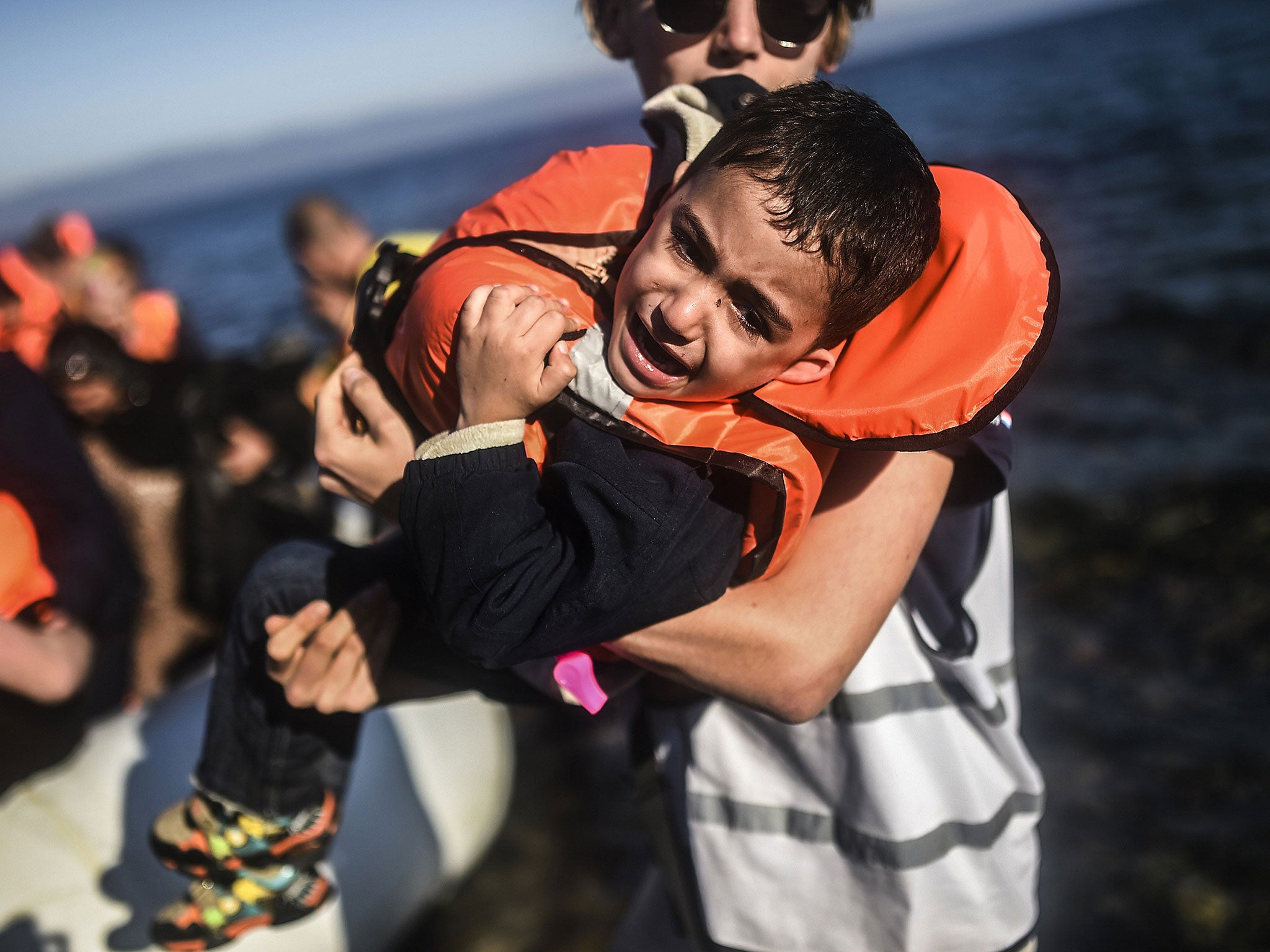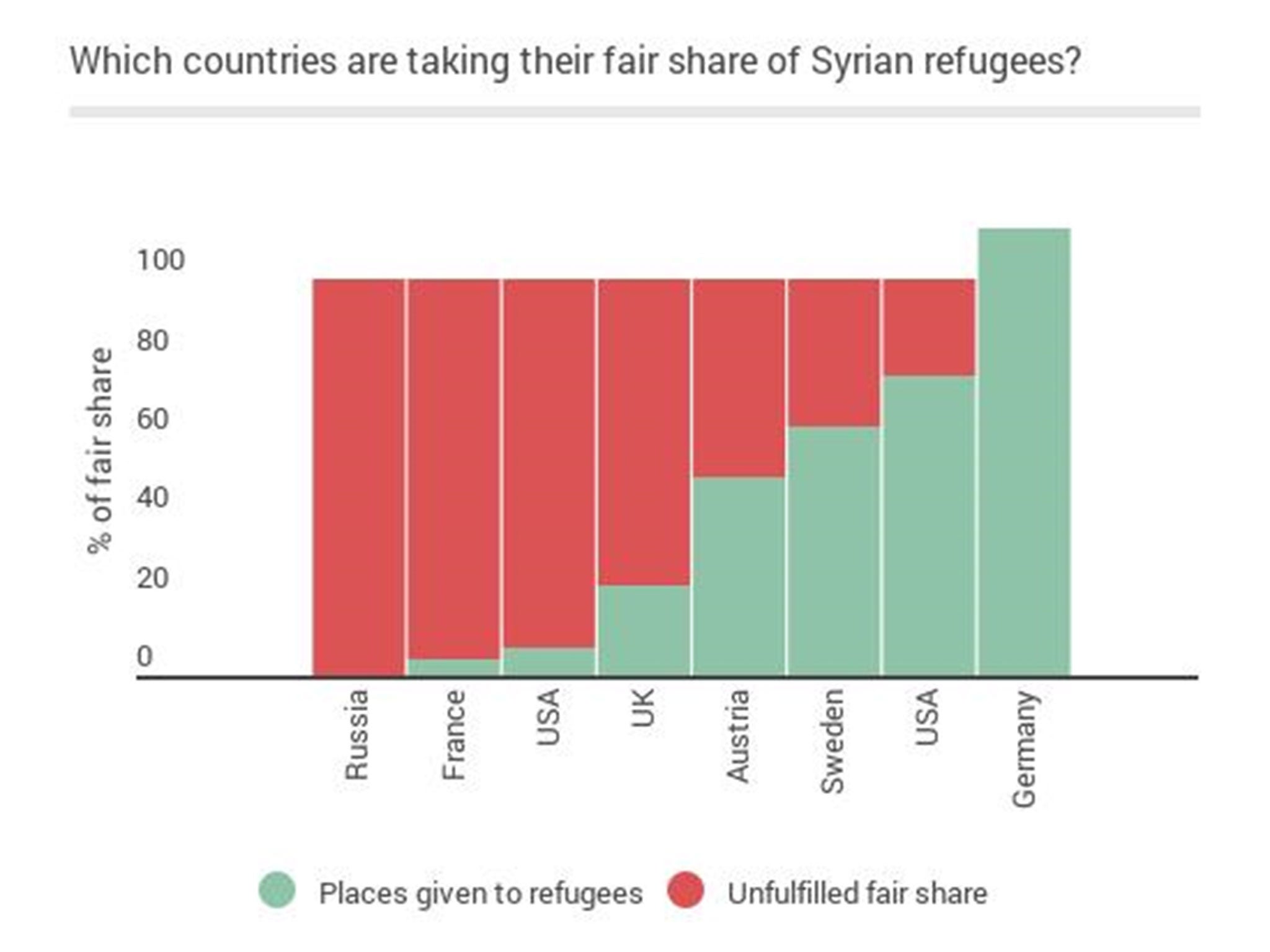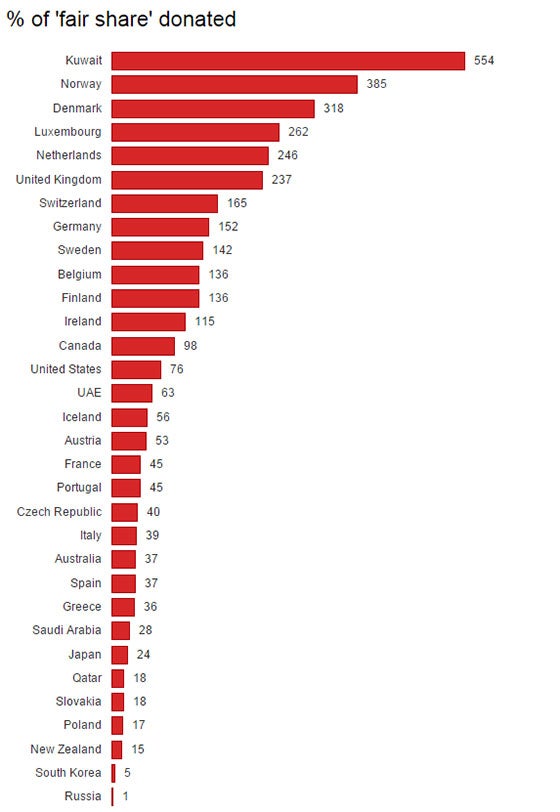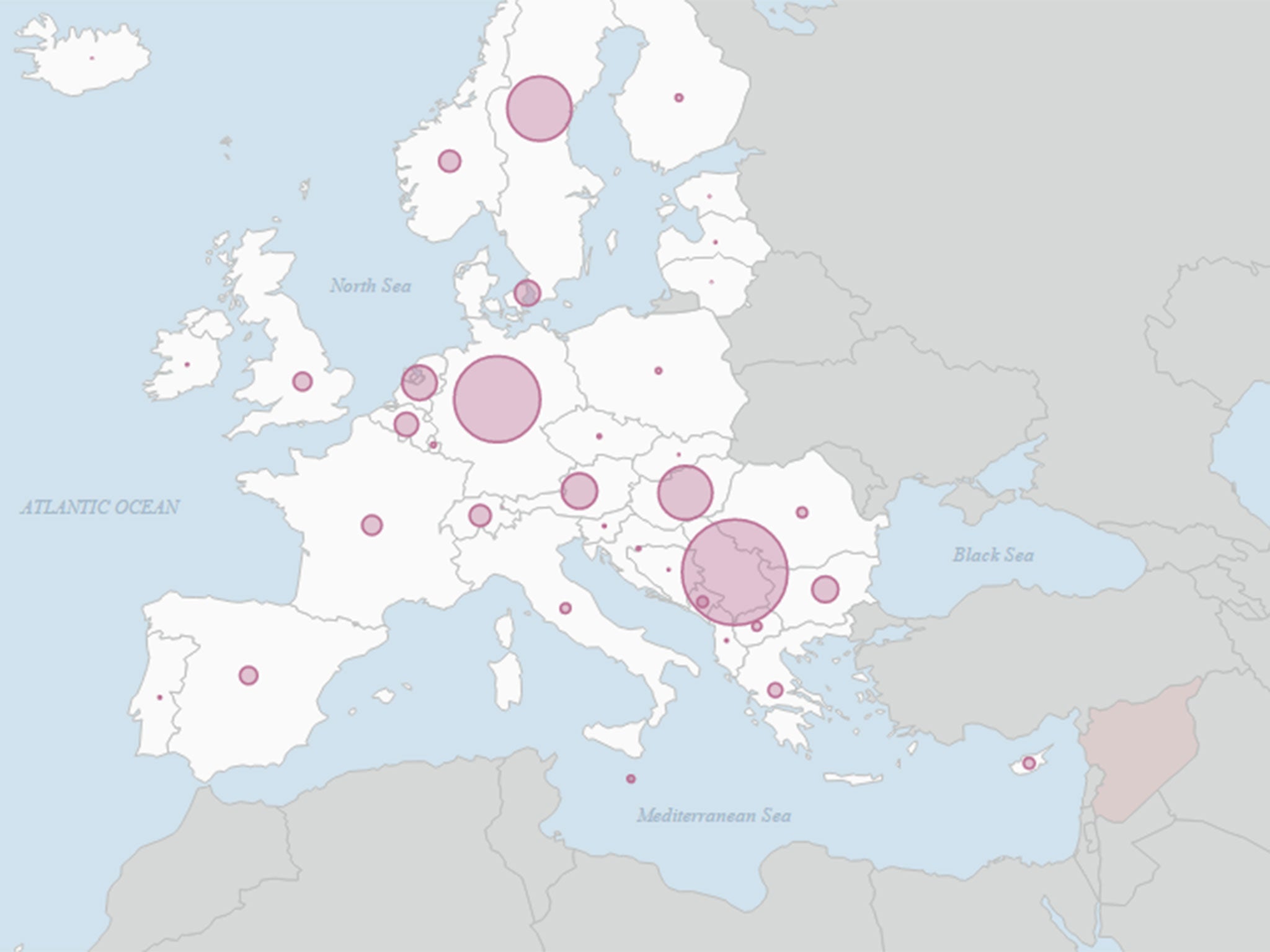Syria refugee summit: 3 charts that show whatever is pledged in London will not be enough on its own
'The world is failing the people of Syria'

Your support helps us to tell the story
From reproductive rights to climate change to Big Tech, The Independent is on the ground when the story is developing. Whether it's investigating the financials of Elon Musk's pro-Trump PAC or producing our latest documentary, 'The A Word', which shines a light on the American women fighting for reproductive rights, we know how important it is to parse out the facts from the messaging.
At such a critical moment in US history, we need reporters on the ground. Your donation allows us to keep sending journalists to speak to both sides of the story.
The Independent is trusted by Americans across the entire political spectrum. And unlike many other quality news outlets, we choose not to lock Americans out of our reporting and analysis with paywalls. We believe quality journalism should be available to everyone, paid for by those who can afford it.
Your support makes all the difference.World leaders and ministers from more than 70 countries are meeting in London to raise money for Syrian refugees – but financial pledges alone will not solve the crisis, charities have warned.
David Cameron opened the conference with a pledge of £1.2 billion over the next four years towards the £6.2 billion the UN says it will need in the next 12 months.
Other countries not hosting the summit are expected to be less generous still – the EU as a whole has pledged €2 billion (£1.5 billion).
The appeal, which includes a request for £900 million from countries bordering Syria, comes in part because only around 40 per cent was eventually of last year’s £2 billion target.
But regardless of the money, charities say the failure of corresponding efforts to find a political solution to the Syrian conflict and the refusal of other countries to take in refugees themselves will only see the crisis worsen.
'Britain can and should do more'

Oxfam has produced analysis ahead of the conference which shows that, while Britain can be commended for the amount of money it has contributed to help Syrians, it falls far short of taking in its “fair share” of people.
The UK has pledged to give homes to 20,000 refugees fleeing the conflict until the end of this conflict – a figure which Oxfam says amounts to just 60 people arriving in each of Britain’s 69 cities per year.
“Britain can and should do more,” said Mark Goldring, Oxfam’s UK chief executive. “The government’s announcement to accept more child refugees from the region, while welcome, barely begins to address the problem.”
Money is not enough

In absolute terms, the UK has provided a greater amount of money towards the crisis than any country other than the US – and it also performs well based on its contribution as a proportion of national income.
For other countries it is the other way round – Australia, for instance, has pledged to take in more refugees than its fair share would indicate. Yet Oxfam says it has contributed just a third of the money it should have given.
The charity reserves its strongest criticism for countries that have been directly involved in the military conflict in Syria, without a corresponding effort to help refugees produced as a result.
Russia, it says, has given just 1 per cent of its fair share of money, while oil-rich Saudi Arabia has given less than 30 per cent.
Heidi Allen, a Conservative MP who visited the European frontline of the refugee crisis on Lesbos, told the Independent she would pressure the Government to take in more unaccompanied children who have arrived in Greece and Italy.
But she said it was “entirely wrong” to separate the two issues of financial and asylum contributions.
“I am immensely proud we have provided more than any other country apart from the US,” she said. “But if all you do is take, take, take people out of the region then they will never be able to rebuild their country when all this is over.”
'This won't stop on the shores of Lebanon'

Regardless of how much money is raised in London this week, huge numbers of people will continue to flee Syria as the conflict continues – and overflow from the region into Europe and elsewhere.
Speaking this morning on the BBC’s Today programme, Lebanese education minister Elias Bou Saab warned that his country was struggling to cope with two million refugees.
“This is something that requires urgent help from the world, urgent attention, otherwise we will not see the end of that and it definitely won't stop at the shores of Lebanon,” he said.
The UNHCR says 4.59 million people have been registered as refugees fleeing Syria, of whom 2.5 million are in Turkey.
Jan Egeland, Secretary General of the Norwegian Refugee Council, said: “Only an end to the fighting and a negotiated political solution will stop the suffering of ordinary Syrians, which is why it's important that international governments push for agreements in the Geneva Syrian peace talks.
“But in the meantime, it is imperative that we invest in hope, education and livelihoods for the civilian population and pave the way for a more stable future.”
Oxfam's Mr Goldring said: "The world is failing the people of Syria. Five years on since the start of the crisis the violence and suffering continues to escalate but the level of funding and support fails to match. Countries must do more to help in Syria, in the region and in resettling the most vulnerable."
Join our commenting forum
Join thought-provoking conversations, follow other Independent readers and see their replies
Comments